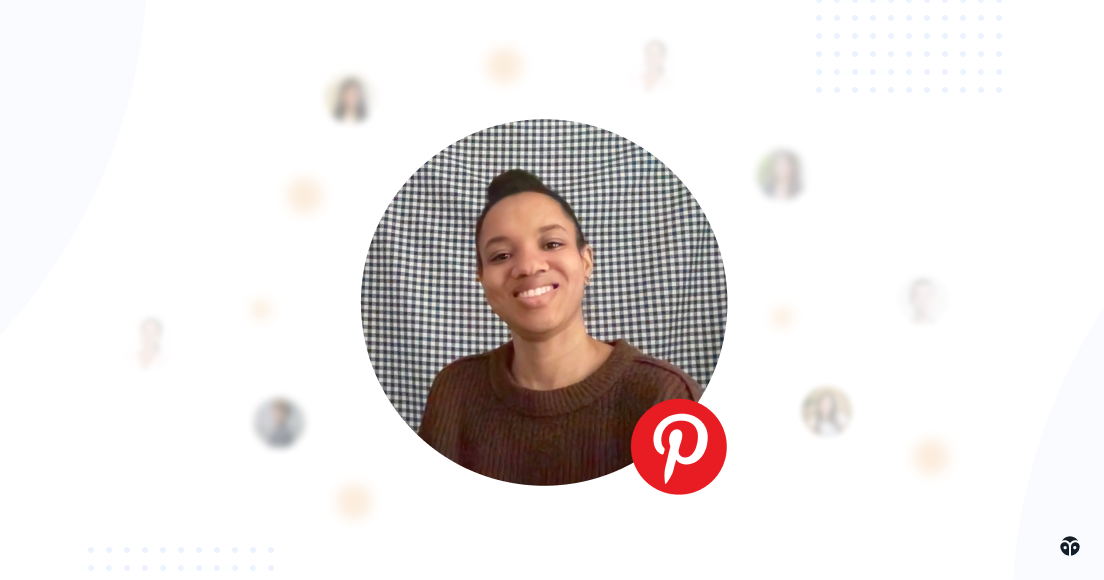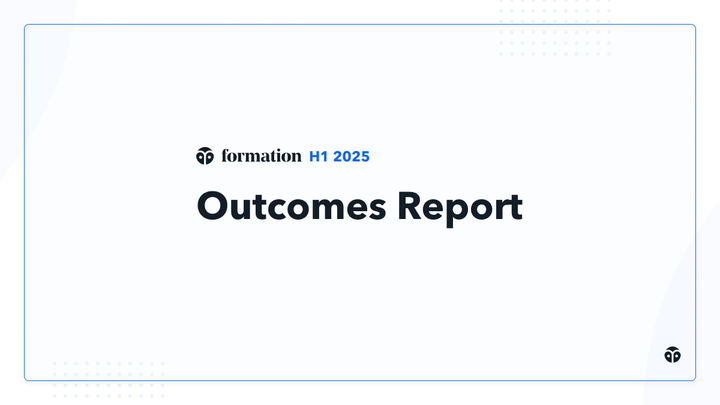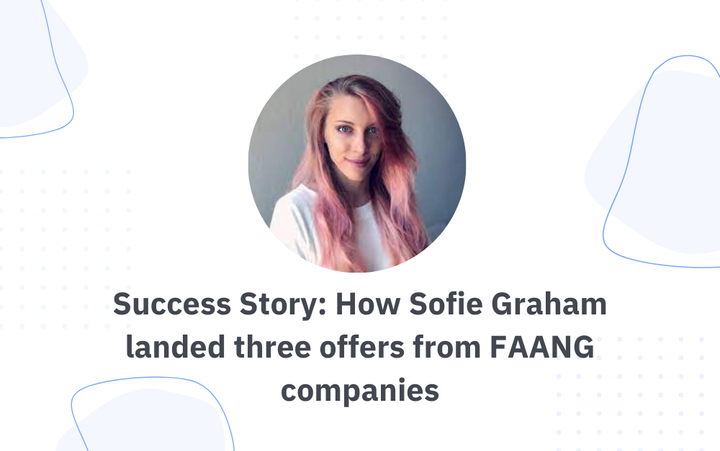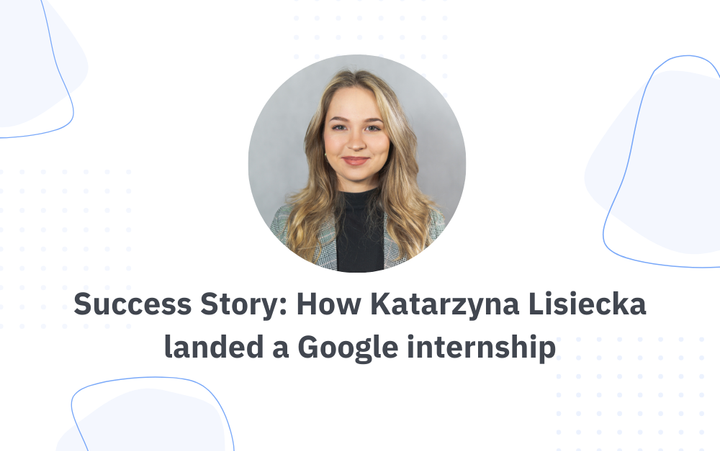Tiffany Grevious: Failing My Way to Success
After teaching herself to code, Tiffany knew she had what it took to be an engineer but struggled to demonstrate that in an interview. Read about her journey to becoming an Engineering Apprentice at Pinterest.

Welcome to Formation’s Fellow Spotlight, a blog series designed to introduce you to former Formation Fellows who have landed their dream jobs. Today we’ll meet Tiffany Grevious, an Engineering Apprentice at Pinterest. A film studies major in college, Tiffany never considered a career in software engineering. Once she taught herself to code, she quickly realized how much she wanted to turn it into her profession. Read about how she “failed" her way to success and why Formation’s community support was instrumental in helping her land her role at Pinterest.
What was your educational/professional background prior to Formation?
I am an almost entirely self-taught engineer. I studied film in college and took one required Computer Science course. I absolutely hated it. I didn’t have a foundation in CS so I fell behind in the course. I dropped the course thinking that engineering was not for me and never would be.
In a turn of events, I ended up leaving college because I lost my passion for film. At the time, I didn’t think film would be the right professional choice for me. When I left, I was still trying to figure out what I wanted to do, so I paid the bills by working as a computer repair technician. Ironically, while doing that, I realized how much I liked computers and wanted to learn more about coding! I took Codeacademy and Udemy courses, watched so many YouTube videos, and the list goes on. It was a winding road that helped me learn programming in a recreational way. I knew I was ready to pivot and turn it into my profession, so I decided to start taking a coding program based in Silicon Valley. It was going well, then the pandemic hit and the school permanently closed.
I knew that self-study could only take me so far, so started looking for internships where I could work my way up from the bottom. I remember interviewing for an internship at Dotdash and I thought I completely failed the interview; I just froze during the whole technical portion. Thinking back, I probably had a panic attack. Even though I thought I failed the interview, I still ended up getting a contract position as a front-end engineer and worked there for about 6 months.
I was becoming frustrated with the lack of resources, especially for someone who is self-taught. I felt like I had stalled, and Formation really spoke to my frustrations.
What originally got you interested in engineering?
I grew up in a rural area with very few opportunities or push for people to become engineers. I took that one CS course in college by chance, but I never considered being an engineer before that. In fact, I was mostly artsy growing up. I always had an interest in computers, but I thought it would only lead to working an office job where you stare at computer all day with no opportunity for imagination. My passion for working with computers was partially why I went to college in the first place—I wanted to learn the technical side of filmmaking.
What problem were you facing or what opportunity did you want to pursue?
I was trying to start my career and get it off the ground and I found some success, but I was having trouble advancing from intern to professional engineer. I was becoming frustrated with the lack of resources, especially for someone who is self-taught. I felt like I had stalled, and Formation really spoke to my frustrations.
What other kinds of training did you consider, and why did you end up choosing Formation?
I was using Pramp and was considering interview.io, but both of those tend to be more of one-off situations than actual structured courses. I discovered Formation through an ad for one of their developer roles. I read about the Fellowship and came to the conclusion that I would do much better as a Fellow than starting back at square one and attending a bootcamp.
What was your specific goal in becoming a Fellow?
I had the skills and competency to be a software engineer, but I knew I didn’t have what it took to demonstrate that in an interview. I also wasn’t comfortable showcasing my data structures and algo skills in an interview. The technical interview was my Achilles. So, my biggest goal was to bridge that gap and be ready to interview.
I never had to spend time or energy figuring out what I needed to work on next; everything was prepared for me through guided planning on the platform.
How did you work with the Mentors?
I had a great time working with the Mentors, especially doing mock interviews. They gave me necessary feedback so I could further tailor my roadmap to where I needed more help and I could pivot my focus if needed. I really liked the support I was able to get from them. They were willing to address anyone’s concerns and questions during sessions, and that really impressed me.
What did you think of the tech platform?
It was great. Going into the Fellowship, I didn’t have too many expectations. I thought I’d hop on a call with someone once a month and read through some documentation and do the learning myself. Surprisingly, it was actually much more inclusive and had way more of a community aspect. I had a Fellow Manager I spoke with weekly and team members I could bounce ideas off of whenever I wanted. Even though it’s somewhat self-guided, it’s very supportive. I never had to spend time or energy figuring out what I needed to work on next; everything was prepared for me through guided planning on the platform.
I like to say I failed my way to success because I never felt bad about trying something new... as a Fellow, you’re able to ask questions, fail, and still receive the support you need to learn. Formation gave me the opportunity to learn through failing.
How did you measure your progress/success through the program?
I knew I was progressing when I saw what I could do that I couldn’t do just a week before. I wasn’t very good at basic data structures and algos, and I had never even heard of a trie or done a linked list. They were all new concepts to me. There would be problems where, just a week prior, I wouldn’t have been able to attempt them. And now, I was doing them.
Also, having 1:1 meetings with my mentor and seeing the progress with mock interviews were helpful. I failed my way to success because I never felt bad about trying something new, whether it was a mock algo interview or something else. When you’re in an interview there is no room to be able to make a mistake; it’s always going to count against you. But, as a Fellow, you’re able to ask questions, fail, and still receive the support you need to learn. Formation gave me the opportunity to learn through failing.
How did your interview skills improve with your Formation training? How did you benefit from practice interviews?
Besides improving on my data structures and algos, the biggest benefit was gaining the confidence I needed to interview without putting too much pressure on myself. Having an environment where I could practice and gain muscle memory allowed me to relax in the actual interview. I also had the opportunity to look at other areas where I needed to improve, like the behavioral parts, and worked on those which alleviated some of the pressure that I used to feel in interviews.
What team are you on in your new role?
I’m on the Front End Team of the Search Product Team at Pinterest.
First code you shipped?
The first code I ever shipped was a simple HTML HelloWorld form.
Proudest moment?
Professionally, getting hired at Pinterest. Working at a company like Pinterest wasn’t even something I had put in my mind until I joined Formation.
Biggest mistake?
I don’t consider anything a mistake; they’re all learning opportunities.
Favorite “Lunch and Learn”?
Kent Beck! It was super insightful to hear him speak.
Formation was so well-structured and the material was very much individualized to you. I liked how involved everyone was in making it a truly tailored experience; it made me feel valued and like I was more than just a number.
Favorite group session?
One of the very last pair programming sessions I did. I had been spending so much time interview prepping for Pinterest that I actually neglected to prepare for my pair programming session. The session required us to implement a trie, but we ended up overcomplicating the solution. Because we didn’t think of using a trie, we had to figure out how to do it without using one. We actually had a lot of fun and we learned how that data structure works, what it’s good for, and why it’s sometimes really important to think outside the box to understand why something works.
Biggest surprise about Formation?
You hear “individualized” thrown around a lot with coding bootcamps and other prep programs, but they usually just give you pre-made materials and that’s it. Formation was so well-structured and the material was very much individualized to you. I liked how involved everyone in the program was in making it a truly tailored experience; it made me feel valued and like I was more than just a number.
Want to level up your career like Tiffany did? Apply to our Fellowship today to train among the industry's best engineers, mentors, career coaches, and more.



